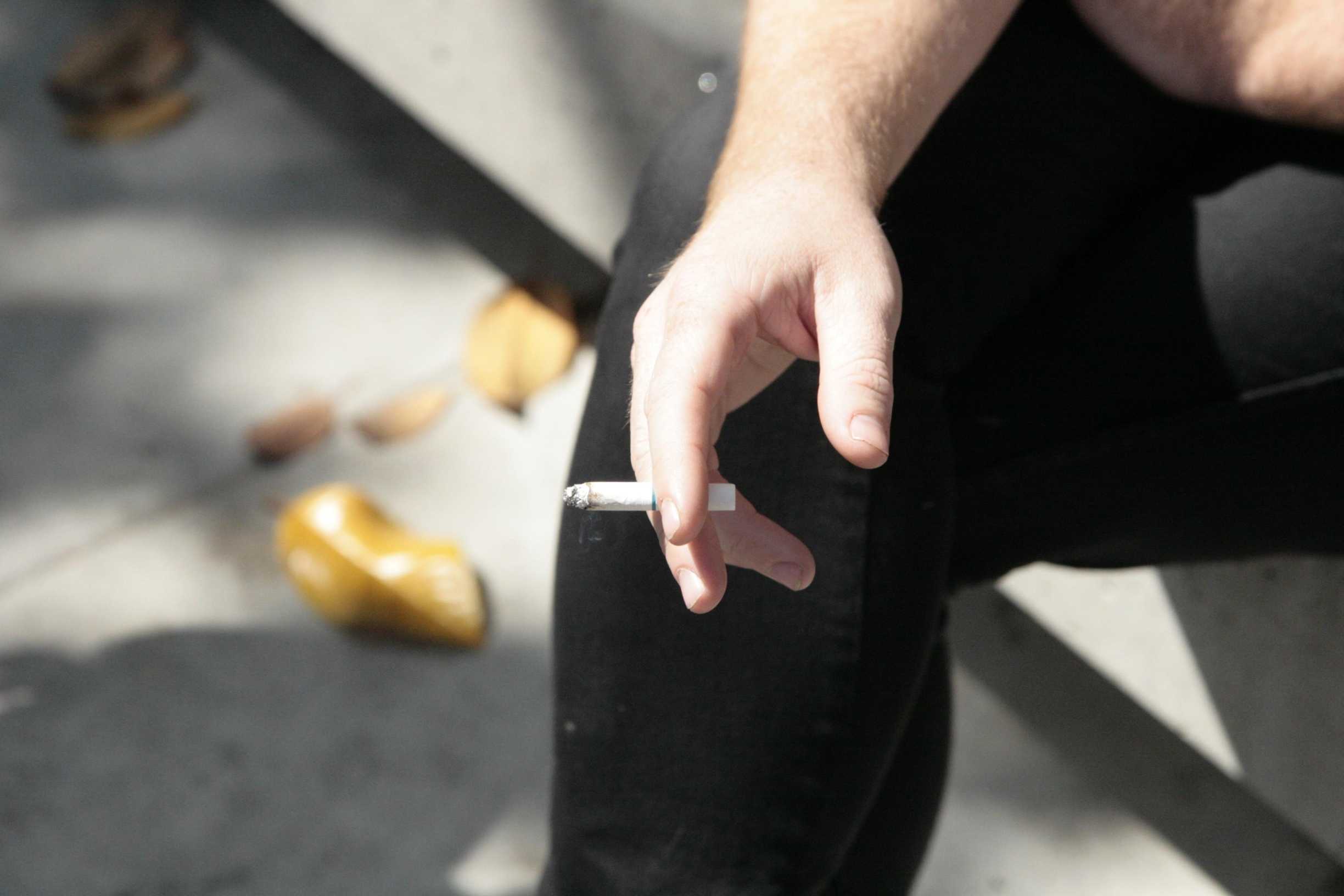By Jeremy Fuerte / Staff Writer

Tax increase (Edward Diaz / Staff Photographer)
By Jeremy Fuerte / Staff Writer
This June Californians will go to the ballot box for the presidential primaries. Along with specific politicians running on the ballot, proposition 29 will also be voted on by the voters.
Prop 29 is a divisive proposition which will raise the taxes on a pack of cigarettes by a dollar in order to fund cancer research.
Many organizations across California are in favor of Prop 29 in order to curb smoking. These organizations include the American Cancer Society, the Lance Armstrong Foundation, the University of California and many other large and small organizations.
Victoria Hecht is a full-time student at Riverside City College and agrees with Prop 29.
“I agree with Prop 29 because the more expensive a cigarette is, the more unwilling an individual will be to pay for it,” she said. “This would lead to less smoking and less cancer; plus, the money is going to a great cause.”
Hecht isn’t the only one at RCC who supports the proposition in order to discourage people from smoking.
“I would vote yes on Prop 29 because it would help fund cancer research and make smokers consider smoking less or just stop all together,” Jorge Pena said, a full-time student at RCC. “So it would be a win for us all.”
While Prop 29 has a huge base of supporters, it also has a large number of protesters. These protesters range from the big tobacco companies to small business and from taxpayer associations to police departments.
Perhaps the largest base of voters Prop 29 will affect is the voters themselves. According to the Center for Disease Control and Prevention, 14 percent of Californians smoke including 16.8 percent of those ranging from 18 to 24 years old, or the average college student.
Mitchell Vandewitte is an avid smoker who is on his way to transferring to CSULB and does not agree with Prop 29.
“It all comes down to I don’t want to pay more money for something I don’t believe in,” Vandewitte said. “I’m all for curing disease and everything, but if they want to tax cigarettes for cancer research they also should tax all fiberglass, insulation, construction materials and genetically modified foods that cause cancer; besides, smoking doesn’t always kill you as fast as eating unhealthy will.”
Vandewitte is correct in stating that smoking isn’t the leading cause of death in the United States. According to the Center for Disease Control and Prevention, heart disease was the leading cause of death in the US, an epidemic which many believe is fueled by the fast food industry. Cancer comes in a close second.
Among those who will also be affected Prop 29 are small business owners. Georgina Kasih is a full-time student at RCC whose father owns a liquor store in Highland. Her family is torn between Prop 29.
“In a small business standpoint we would be slightly against it, not that it would affect our sales so much, but it would affect them,” Kasih said. “From my families standpoint, especially my dad’s, who quit smoking a year ago, I’m sure he would not mind at all an extra tax on cigarettes if it could possibly fund research or stop people from smoking.”
Kasihs family is iconic of California as a whole, torn between wanting to find a cure for cancer but fearing the cigarette tax may negatively affect the local economy. They will have to make a choice this June, a choice that pits their wallet against their addiction.






